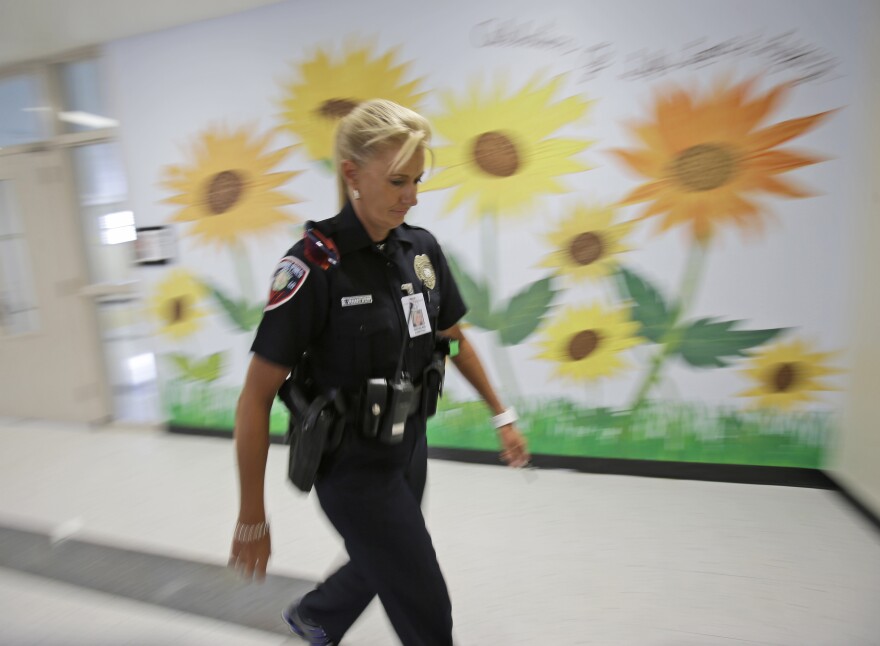As communities all over the country continue to debate how to keep children safe at school, many districts have turned to School Resource Officers, or SROs -- essentially uniformed and armed police officers in school. But a new study in Connecticut shows that SROs can have a negative impact on students.
Districts often request school resource officers because they believe it will improve safety and discipline, but until this report from Connecticut Voices for Children, there’s been no reliable data analysis to show whether that’s achieved.
And it's an issue for more and more districts around the country. The Office of Civil Rights Data Collection at the U.S. Department of Education shows that between the 2012-13 and 2015-16 school years the number of schools using SROs increased by 29 percent.
When the study examined public safety measures, including the use of weapons, drugs, or alcohol; theft; and property damage, the data showed the average numbers of incidents were not significantly different in schools with SROs.
The academic performance of students was also relatively unaffected by the presence of SROs.
But Camara Stokes Hudson, one of the study authors, said in fact what happens when you employ more SROs is that some students experience more exclusionary discipline.
“We specifically found that the average arrest rate of Latino students at schools with an SRO was six times the average arrest rate of Latino students at schools without an SRO,” she told Connecticut Public Radio.

While there’s no difference in the rate of incidents involving drugs or weapons in schools that employ SROs, but there is a higher rate of incidents involving school policy violations, like dress code, running in hallways or talking back to teachers.
Stokes Hudson said the possibility of being arrested has serious consequences for students.
“Even one arrest can result in children experiencing reduced access to future educational opportunities, future employment opportunities," she said. "Racial and ethnic disparities are exacerbated and made worse and that the youth that we end up pushing out are often black, Latino, native youth.”
Connecticut Voices for Children wants school districts to publish the agreements they make with school resource officers, and ensure that students understand what their rights are when they interact with SROs.
The organization also wants the legislature to commission more comprehensive research on the effect of SROs in school districts.





